Originally posted by Vrej1915
View Post
Announcement
Collapse
Forum Rules (Everyone Must Read!!!)
1] What you CAN NOT post.
You agree, through your use of this service, that you will not use this forum to post any material which is:
- abusive
- vulgar
- hateful
- harassing
- personal attacks
- obscene
You also may not:
- post images that are too large (max is 500*500px)
- post any copyrighted material unless the copyright is owned by you or cited properly.
- post in UPPER CASE, which is considered yelling
- post messages which insult the Armenians, Armenian culture, traditions, etc
- post racist or other intentionally insensitive material that insults or attacks another culture (including Turks)
The Ankap thread is excluded from the strict rules because that place is more relaxed and you can vent and engage in light insults and humor. Notice it's not a blank ticket, but just a place to vent. If you go into the Ankap thread, you enter at your own risk of being clowned on.
What you PROBABLY SHOULD NOT post...
Do not post information that you will regret putting out in public. This site comes up on Google, is cached, and all of that, so be aware of that as you post. Do not ask the staff to go through and delete things that you regret making available on the web for all to see because we will not do it. Think before you post!
2] Use descriptive subject lines & research your post. This means use the SEARCH.
This reduces the chances of double-posting and it also makes it easier for people to see what they do/don't want to read. Using the search function will identify existing threads on the topic so we do not have multiple threads on the same topic.
3] Keep the focus.
Each forum has a focus on a certain topic. Questions outside the scope of a certain forum will either be moved to the appropriate forum, closed, or simply be deleted. Please post your topic in the most appropriate forum. Users that keep doing this will be warned, then banned.
4] Behave as you would in a public location.
This forum is no different than a public place. Behave yourself and act like a decent human being (i.e. be respectful). If you're unable to do so, you're not welcome here and will be made to leave.
5] Respect the authority of moderators/admins.
Public discussions of moderator/admin actions are not allowed on the forum. It is also prohibited to protest moderator actions in titles, avatars, and signatures. If you don't like something that a moderator did, PM or email the moderator and try your best to resolve the problem or difference in private.
6] Promotion of sites or products is not permitted.
Advertisements are not allowed in this venue. No blatant advertising or solicitations of or for business is prohibited.
This includes, but not limited to, personal resumes and links to products or
services with which the poster is affiliated, whether or not a fee is charged
for the product or service. Spamming, in which a user posts the same message repeatedly, is also prohibited.
7] We retain the right to remove any posts and/or Members for any reason, without prior notice.
- PLEASE READ -
Members are welcome to read posts and though we encourage your active participation in the forum, it is not required. If you do participate by posting, however, we expect that on the whole you contribute something to the forum. This means that the bulk of your posts should not be in "fun" threads (e.g. Ankap, Keep & Kill, This or That, etc.). Further, while occasionally it is appropriate to simply voice your agreement or approval, not all of your posts should be of this variety: "LOL Member213!" "I agree."
If it is evident that a member is simply posting for the sake of posting, they will be removed.
8] These Rules & Guidelines may be amended at any time. (last update September 17, 2009)
If you believe an individual is repeatedly breaking the rules, please report to admin/moderator.
You agree, through your use of this service, that you will not use this forum to post any material which is:
- abusive
- vulgar
- hateful
- harassing
- personal attacks
- obscene
You also may not:
- post images that are too large (max is 500*500px)
- post any copyrighted material unless the copyright is owned by you or cited properly.
- post in UPPER CASE, which is considered yelling
- post messages which insult the Armenians, Armenian culture, traditions, etc
- post racist or other intentionally insensitive material that insults or attacks another culture (including Turks)
The Ankap thread is excluded from the strict rules because that place is more relaxed and you can vent and engage in light insults and humor. Notice it's not a blank ticket, but just a place to vent. If you go into the Ankap thread, you enter at your own risk of being clowned on.
What you PROBABLY SHOULD NOT post...
Do not post information that you will regret putting out in public. This site comes up on Google, is cached, and all of that, so be aware of that as you post. Do not ask the staff to go through and delete things that you regret making available on the web for all to see because we will not do it. Think before you post!
2] Use descriptive subject lines & research your post. This means use the SEARCH.
This reduces the chances of double-posting and it also makes it easier for people to see what they do/don't want to read. Using the search function will identify existing threads on the topic so we do not have multiple threads on the same topic.
3] Keep the focus.
Each forum has a focus on a certain topic. Questions outside the scope of a certain forum will either be moved to the appropriate forum, closed, or simply be deleted. Please post your topic in the most appropriate forum. Users that keep doing this will be warned, then banned.
4] Behave as you would in a public location.
This forum is no different than a public place. Behave yourself and act like a decent human being (i.e. be respectful). If you're unable to do so, you're not welcome here and will be made to leave.
5] Respect the authority of moderators/admins.
Public discussions of moderator/admin actions are not allowed on the forum. It is also prohibited to protest moderator actions in titles, avatars, and signatures. If you don't like something that a moderator did, PM or email the moderator and try your best to resolve the problem or difference in private.
6] Promotion of sites or products is not permitted.
Advertisements are not allowed in this venue. No blatant advertising or solicitations of or for business is prohibited.
This includes, but not limited to, personal resumes and links to products or
services with which the poster is affiliated, whether or not a fee is charged
for the product or service. Spamming, in which a user posts the same message repeatedly, is also prohibited.
7] We retain the right to remove any posts and/or Members for any reason, without prior notice.
- PLEASE READ -
Members are welcome to read posts and though we encourage your active participation in the forum, it is not required. If you do participate by posting, however, we expect that on the whole you contribute something to the forum. This means that the bulk of your posts should not be in "fun" threads (e.g. Ankap, Keep & Kill, This or That, etc.). Further, while occasionally it is appropriate to simply voice your agreement or approval, not all of your posts should be of this variety: "LOL Member213!" "I agree."
If it is evident that a member is simply posting for the sake of posting, they will be removed.
8] These Rules & Guidelines may be amended at any time. (last update September 17, 2009)
If you believe an individual is repeatedly breaking the rules, please report to admin/moderator.
See more
See less
Nagorno-Karabagh: Military Balance Between Armenia & Azerbaijan
Collapse
X
-
-
-
 The small, renegade republic of Nagorno-Karabakh in the Caucasus is deeply patriachal. But for the last several years, more and more women have been rising to positions of leadership in the government, courts and universities. The development has changed the country.
The small, renegade republic of Nagorno-Karabakh in the Caucasus is deeply patriachal. But for the last several years, more and more women have been rising to positions of leadership in the government, courts and universities. The development has changed the country.
A Woman's World in the Caucasus
Nagorno-Karabakh's Grand Experiment
The small, renegade republic of Nagorno-Karabakh in the Caucasus is deeply patriachal. But for the last several years, more and more women have been rising to positions of leadership in the government, courts and universities. The development has changed the country.
By Fiona Ehlers
Photo Gallery: Women Leaders in a Caucasus PatriarchyPhotos
Karl Mancini
April 10, 2018 05:56 PM Print FeedbackComment
A woman is standing in a basement in the Caucasus. In her early 40s, she is wearing jeans and her black hair falls loosely to her shoulders. She points to the corner where she once huddled with her family as a young woman and indicates the staircase where a shell bored into her brother's body. She shows the crate out of which she pulled the Kalashnikov every time her father went to the front.
The woman who is leading the way through the basement, a cellar that used to be used for food storage before becoming a bomb shelter, is Armine Aleksanyan, the deputy foreign minister of Nagorno-Karabakh (also known as Artsakh). She is a woman with power, proud and divorced.
Thanks to an historic opportunity, she has risen to a position that she otherwise never would have been allowed to take. At least not here in this macho republic, a place where men are in the military, guard the borders and shout orders. A place where women, up until two generations ago, covered their mouths with scarves and where traditional gender roles hardly budged despite 70 years of Soviet rule. A place where the pastor at weddings still asks the groom "Do you speak in her name?" and inquires of the bride "Will you be obedient?"
The renegade republic of Nagorno-Karabakh, which international law considers to be part of Azerbaijan, is marked by both war and poverty and is strictly patriarchal. Yet for the last two decades, it has been women who have found their way to power. They have risen to leadership positions, taken over ministries, lead the university, head up the highest court and command police units. They fill the gaps left behind by men who have fallen or been wounded in battle or who have left for Russia to search for work.
Of the 150,000 residents of this tiny region between the Black and the Caspian seas, 45,000 men are at arms, either as active troops or in the reserve. Propaganda posters and signs reading "Beware: The Enemy Is Listening" hang on the fronts of buildings, elementary school children receive weapons training and one television station broadcasts an uninterrupted stream of military parades.
A Laboratory Experiment
All of it is aimed at Azerbaijan, a country with which Nagorno-Karabakh has been at war ever since it declared its independence in 1991. In total, the conflict has thus far cost the lives of 40,000 people on both sides and driven more than a million people from their homes.
In Nagorno-Karabakh, the result of the violence has been a laboratory experiment: It is possible to observe here what happens if women are simply left to do their thing and their path to power is not closed off. None of them have sought out this fate. They aren't declared feminists and are no more involved in gender debates than the women in Germany who cleaned up the rubble following World War II.
But what have the women made out of this unique opportunity? What can other women learn from them?
Aleksanyan leads the way out of the basement and into her parents' living room. Her mother is in the kitchen playing cards with other women in their 70s, with their golden teeth and black eyebrows, and wearing bonbon-colored dressing gowns in the late afternoon. There is mulberry marmalade on offer along with pickles as the women tell stories of the men they have lost through the war or infidelity. All of them have lost somebody, but they are not embittered. The tears flow as does the excellent Ararat brandy -- and soon it becomes clear that the women here are funnier than the men. The only man in the group, Aleksanyan's father, has long since crept out to tend to the cows in front of the house.
In Stepanakert, the capital of Nagorno-Karabakh, Aleksanyan has an office on the first floor of the Foreign Ministry, a small building sandwiched between two decaying concrete-block buildings. A photo of a donkey hangs on the wall above her desk.
Photo Gallery
10 Photos
Photo Gallery: The Strong Women of Nagorno-Karabakh
"Strong-willed and stubborn," Aleksanyan says, qualities she sees in herself. She considers them to be characteristics that help her in the fight to achieve her life goals: the right to self-determination and international recognition. So far, Nagorno-Karabakh is not recognized internationally, not even by its protector state Armenia. It is essentially an Armenian exclave on Azerbaijan territory.
Aleksanyan's task is that of representing this de-facto state, which is far from a simple job. But she does so with iron discipline despite the many setbacks and constant isolation. If anyone is able to explain how women can assert themselves in a country where it is said that "women are hard-working, but men's brains are bigger," then it is Aleksanyan. She says that diplomatic aptitude is necessary: She calls it "para-diplomacy."
Being an Accessory
Women in Nagorno-Karabakh assert themselves cautiously, with strategic cleverness. It is apparent when the deputy foreign minister explains her complex country to visitors or when she stays in the background so that her boss, the foreign minister, gets all the credit.
Men, Aleksanyan and all the women here well know, must be gently convinced and cannot be given the impression that they are no longer necessary or that they are being pushed aside. It is important that their public roles not be infringed upon -- which is apparent on the streets of Stepanakert. In public, women are accessories, dressed to the nines like the Kardashian sisters and strutting about in knee-high boots beneath short skirts on the arms of their men, who wear angular fur hats.
Aleksanyan, though, isn't very good at being an accessory. She's far too self-confident for that. Her husband was jealous, so she threw him out and has been raising her children alone since then. Many women in Nagorno-Karabakh have their own careers and lead independent lives, but they refrain from constantly rubbing it in the noses of their men. The result is that, even if there is no peace in the country, there is at least peace between the genders and in the families.
Narine Agabalyan is one of those women. Fifty years old, she wears pantsuits and keeps her hair sensibly short. She was Nagorno-Karabakh's first culture minister and her staff was almost 80 percent women. Now, she's the minister of education. She receives visitors in a frigid office, seated beneath a Nagorno-Karabakh flag with a serious expression on her face. Without prompting, she says that the war has made her strong. At 23, she was a soldier in the trenches. Her husband died at the front and she gave birth to their son two months later, who she named Edmon after his father. Anyone else would have taken to the bottle.
But Narine Agabalyan fought her way back into life. As a television journalist, she reported on enemy lines, losses and pogroms -- and soon grew tired of it. She began looking for a new career paths and found her way into politics, where she rose to become culture minister, allotting money for the renovation of mosques instead of weapons purchases. She never remarried.
"Two things," she says, still unsmiling, when asked what differentiates her from her male counterparts in the cabinet. "First, stay flexible and don't become addicted to posts and power." Second, she leads her ministry like a family. That means: "Listen, allow people to speak. No elbows, no bragging about heroic deeds, compromises every day."
'So Few of Us'
What you won't hear from either women or men here are stories of paternalism or officiousness that women must endure from male colleagues or men at large despite the large number of women in leadership positions.
"We are unfamiliar with violence against women," says the education minister. She says she can't think of any other country in the world that is safer for women. Is it because of all the soldiers and security personnel? "It's because there are so few of us," she says, echoing something that almost all women in Nagorno-Karabakh say. Because everybody knows everybody else, men cannot afford any kind of a scandal.
Artsakh State University, where Manush Minasyan works, is located not quite two kilometers from the ministry. With her dark, pageboy haircut and warm voice, Minasyan is the first female rector of the university, and she always saw numbers as a challenge, never viewing math as a male domain. She studied statistics and went on to lead the country's tax office. "Our country offers tremendous opportunities for women," she says.
She leads the way down long hallways, pushing open doors as she goes. "Look, the lecture halls are full of girls." Following a glance at the numbers and a brief check with her calculator, she says: "Almost 90 percent of all women of working age have jobs. In the last 10 years, the number of women in leadership positions in our country has risen by 300 percent. The number has risen by 60 percent in the public sector. What do you say to that?"
Do women make better bosses? Do they wield their power differently? Minasyan says she has often considered those questions. "Women are more flexible and more reliable, but more than anything, they are better educated," she says. Because women are not subject to compulsory conscription they can concentrate on their studies, which qualifies them for better jobs. "And they are clever enough," Minasyan says, echoing the frequently heard refrain, "not to flaunt that fact in front of their men."
The rector, however, is quick to reject the notion that women are more pacifist than men, almost as though the suggestion was an insult. Recently, she says, the defense minister was at the university and many of the female students wanted to know why they were not subject to conscription. Minasyan says the minister replied by saying that women belong at home in the kitchen, a response that angered the students. "I personally think they should be allowed to go into the army if they want," she says. Indeed, almost all women in Nagorno-Karabakh say they would be prepared to take up arms to defend their country if need be.
The degree to which the never-ending war is, on the one hand, an opportunity for the country's women while also tearing families apart on the other can best be seen outside of the capital city. The further north one travels, the more trenches one sees, some fortified with wooden planks while others have been filled in only for new ones to be dug out a few meters away. It is a constant wrangling over a few meters of land wrested away from the enemy, not unlike the back-and-forth of a chess match that will ultimately be won by nobody.
General Antranik (1865-1927): “I am not a nationalist. I recognize only one nation, the nation of the oppressed.”
Comment
-
Blossoming Hope
The front line runs through Talish, a border town at the foot of a green range of hills, with young men wearing wispy moustaches facing each other, each with their blood types sewn onto their uniforms. Talish is little more than a field of rubble, with almost every house in the village having been damaged or destroyed in the hostilities, yards littered with shell craters. Almost every night, residents say, artillery can be heard. It is a village of men. They bulldoze the rubble away and work on rebuilding the festival hall -- all while drinking vodka out of soft drink bottles. Their wives live a half hour away in white containers heated with wood stoves and send their children to a makeshift school where they receive weapons training for five hours each week.
But there are also places where hope is blossoming like a delicate flower, places that are home to people less involved in this eternal conflict between Muslims and Christians. They are people like Nana, a dark-haired 27-year-old who is bursting with curiosity. Nana is a political scientist whose job it is to lead the institutions of higher education in Nagorno-Karabakh into the modern era, to attract professors from abroad and establish exchange programs. She went to university in Armenia and could have launched her career there, but she decided to return. "Because I'm more needed here," she says in explanation. When Nana hears the proverb that is familiar to everyone in the country, "Women are the backbone that supports the head, which is male," she becomes enraged.
To be sure, Nana also parades through the streets on holidays carrying the Nagorno-Karabakh flag and she stands at attention when decorated veterans lay flowers at the graves of the war dead. But she also knows that her country has no future if it continues to remain stuck in the past. She leads the way down the main street of Stepanakert, where soldiers are strolling, girls on their arms.
"Somewhere around here," she says, pointing to the buildings, "is where my office will be one day, in a United Nations office that doesn't yet exist. As a political consultant, as an intermediary between the worlds."
Nana is convinced that she will one day live a life in freedom, independent of war and of men. Does she want to have children? Of course she wants to have children, she says. Almost all women here have children, and if they don't, they see it as a significant misfortune. They have children because the country needs them for its survival and to fight further wars. Mostly, though, because they love children.
'Back to the Mines'
Nana is part of a new generation in the country, one that is a step further along than the education minister and the deputy foreign minister. Their notion of a peaceful Nagorno-Karabakh goes beyond the establishment of a peace deal with Azerbaijan. These younger women didn't live through the war in the 1990s and the Four Day War in April 2016 was for them just a brief nightmare. They think less in terms of perpetrators and victims and hardly differentiate anymore between men and women.
They're people like the ones who gather in Bardak, a garage in Stepanakert that has been transformed into a club where young men and women from Nagorno-Karabakh gather to flirt, smoke, sip vodka and dance to "Another Brick in the Wall" -- young people who have no intention of serving, of suffering and of dying in the name of hate. But the situation hasn't developed quite that far yet. The country is still a barricaded island connected to Armenia only by a narrow corridor, through which small buses full of people and goods make their way twice a day.
Not far from here, six women can be found on a snow-covered hillside, none of them speaking of politics. The team is responsible for clearing mines, buried a few centimeters deep in the frozen ground. Working on behalf of the british aid organization Halo, they are doing the men's work of removing the remnants of war -- and they are good at it.
Warditer, 38, has painted her nails green and is wearing solid work shoes. She pulls down her protective visor, swings her metal detector slowly back and forth, almost in slow motion, until it sounds the alarm. She blows her whistle to alert the others and begins digging carefully until the mine has been uncovered and can be defused.
"It's like vacuuming," Warditer says, adding that her husband wasn't particularly thrilled about her new occupation. But, she says, "I love my job. At home, I really do have to vacuum, but I hate it and am eager to get back to the mines."
Thus far, just 10 percent of those working in minesweeping are women. But in summer, when the ground becomes softer, the number is set to double. This small country full of weapons needs them badly: Nagorno-Karabakh has one of the highest concentrations of landmines and cluster bombs in the world.
"I never again want to live through this hell," Warditer says, who was standing next to her uncle when he stepped on a mine and was blown to bits. "My work," she says, putting her hand on her heart, "will not have been done in vain."
General Antranik (1865-1927): “I am not a nationalist. I recognize only one nation, the nation of the oppressed.”
Comment
-
Վերացնում ենք արատավոր պրակտիկան...Նիկոլ Փաշինյանի կեսգիշերային ուղիղ հեռարձակումը Բաղրամյան 26-ից
Comment
-



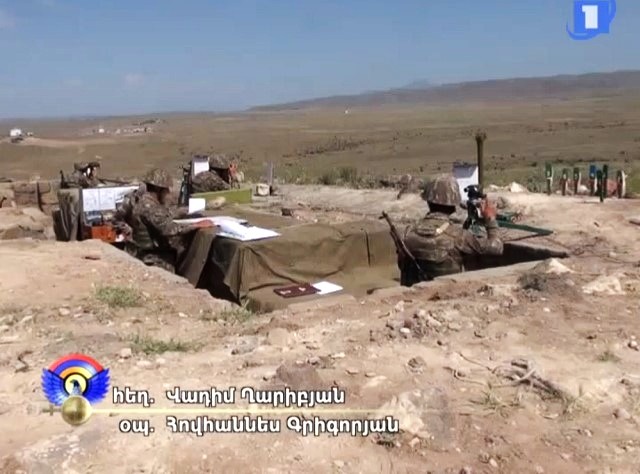
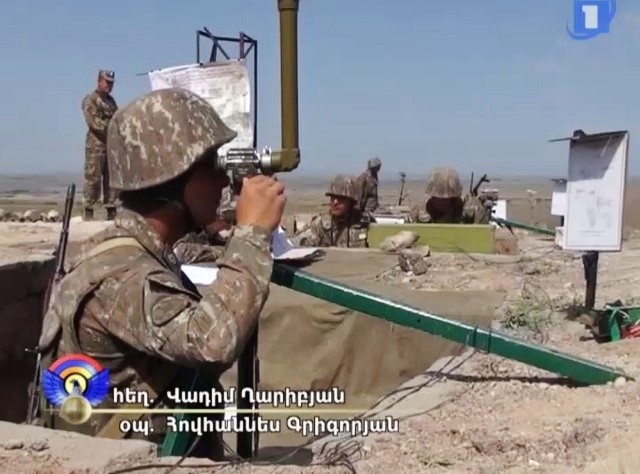
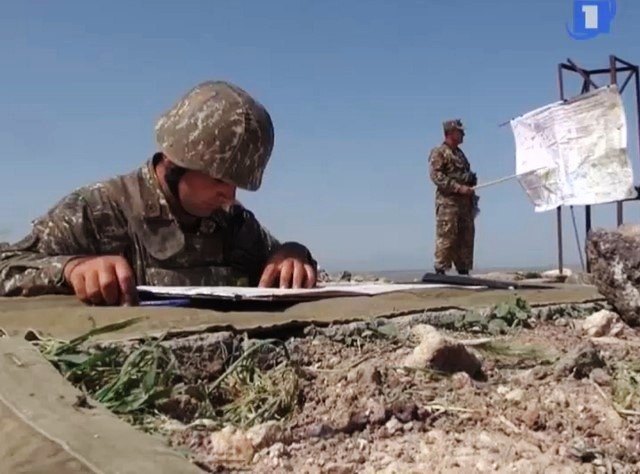
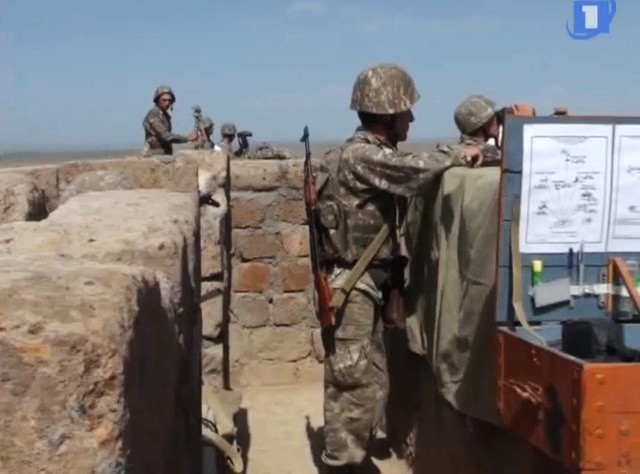
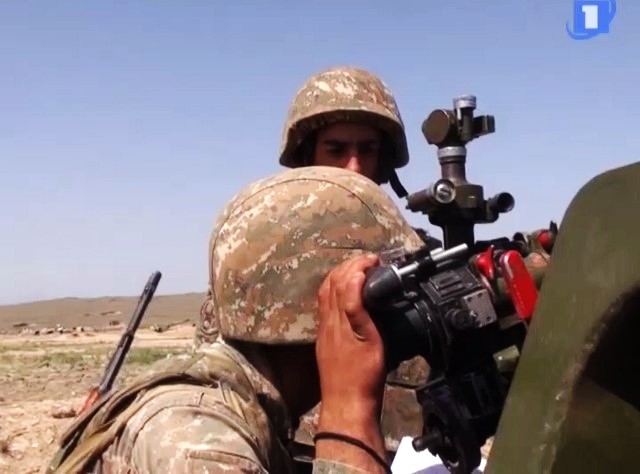
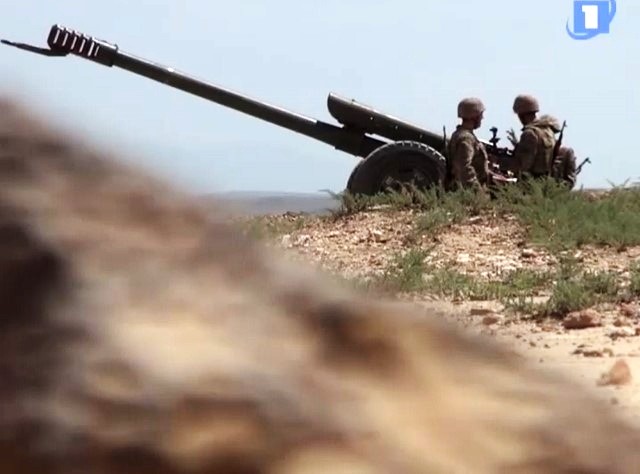
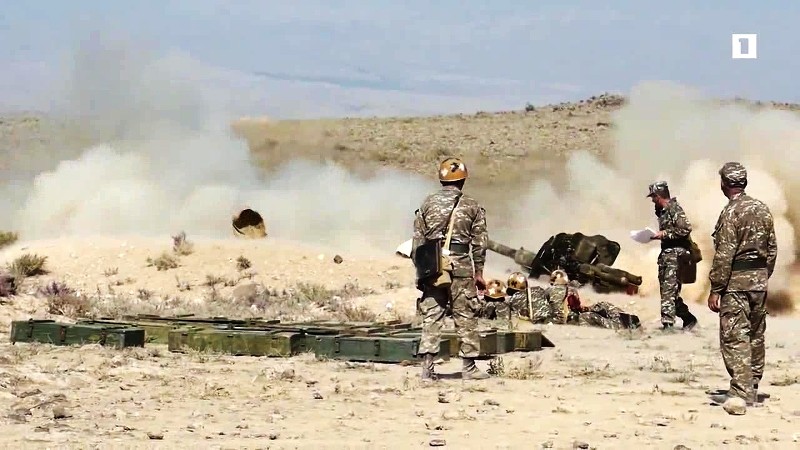
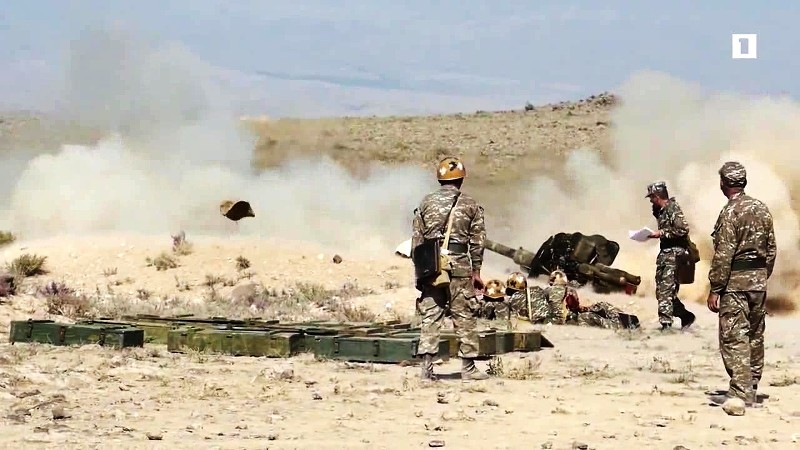
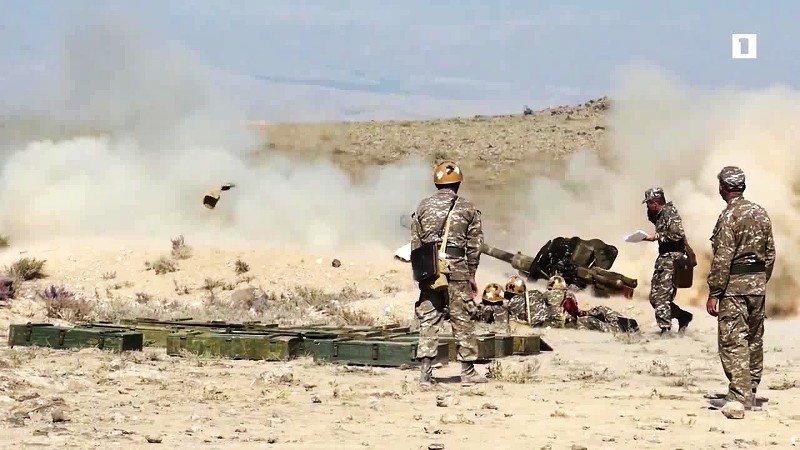
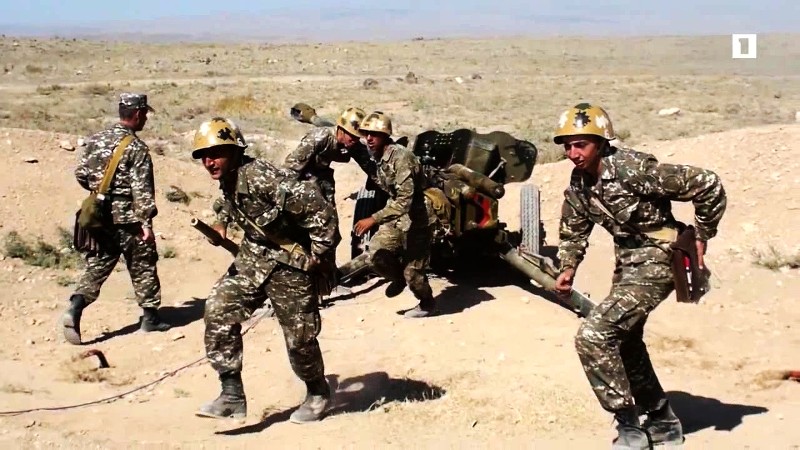
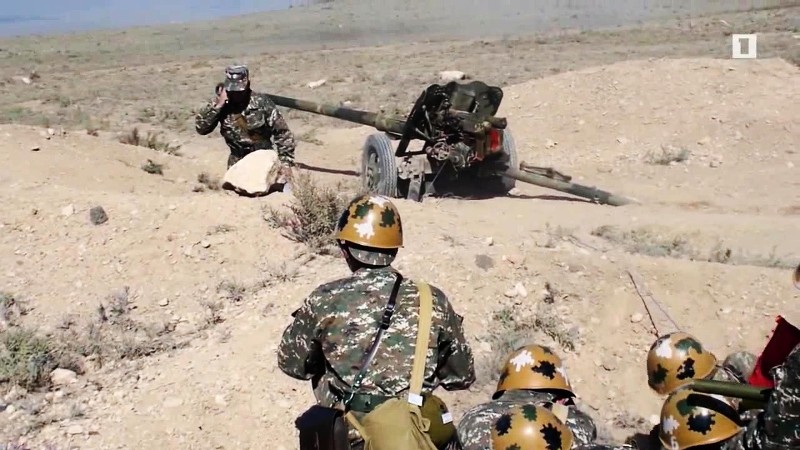
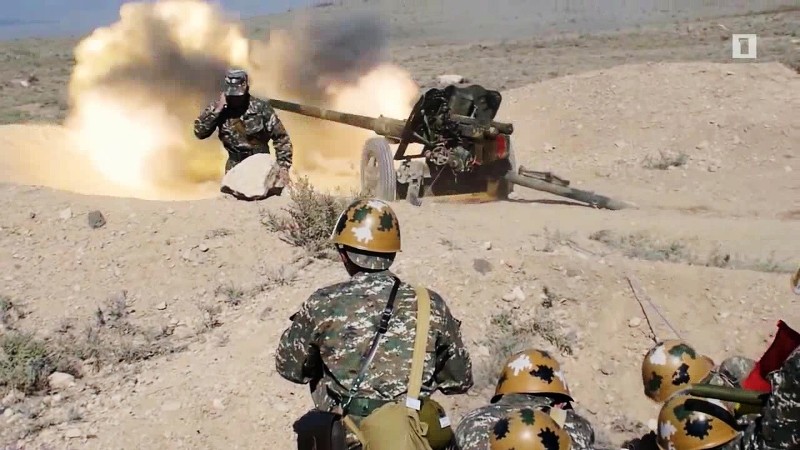
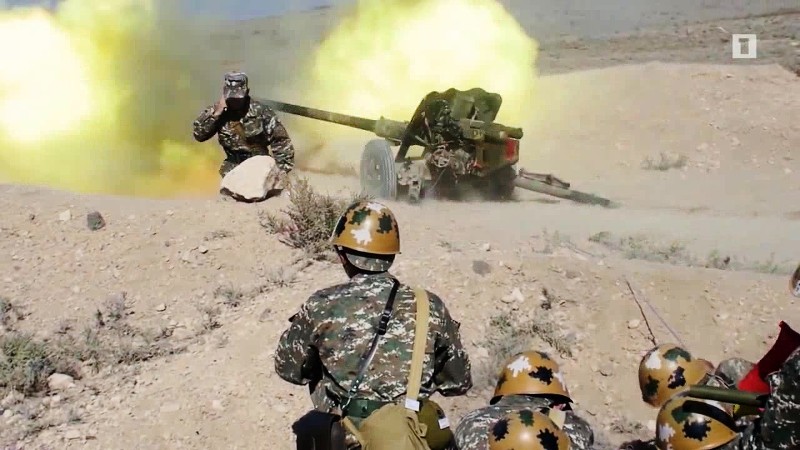
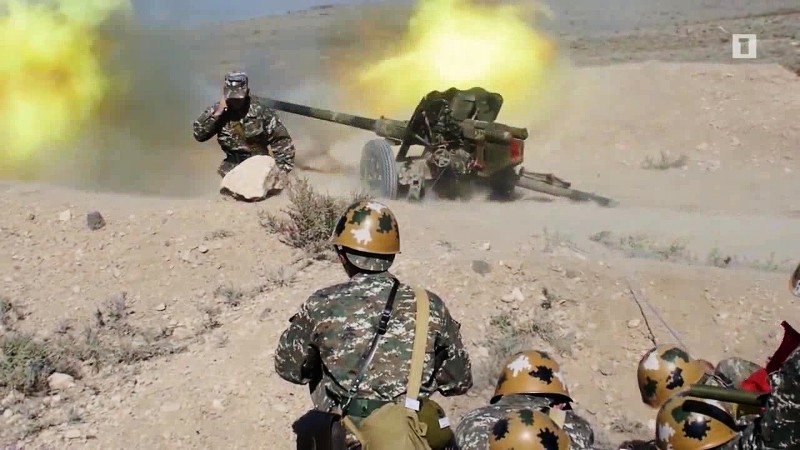






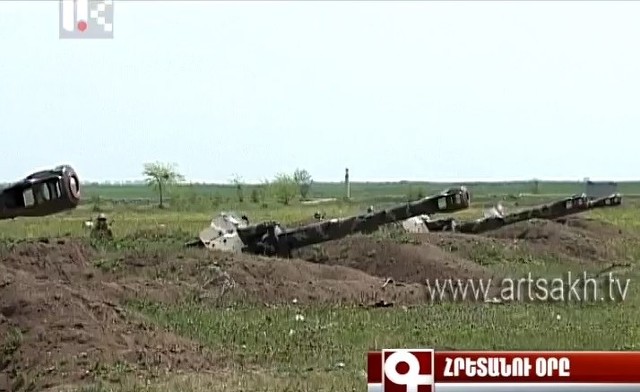
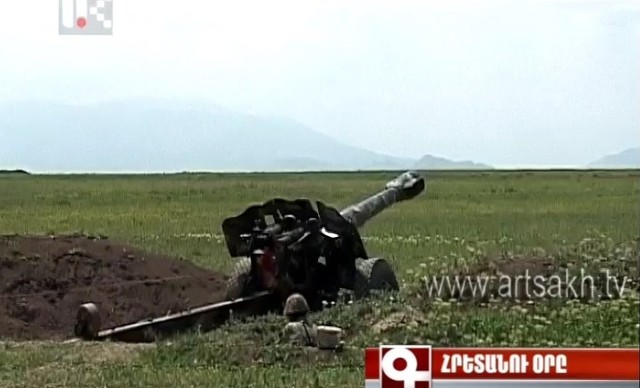
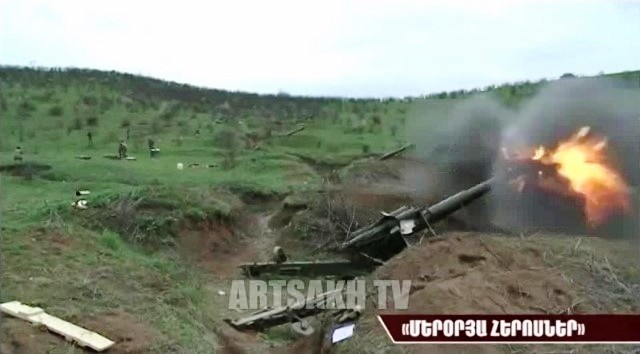
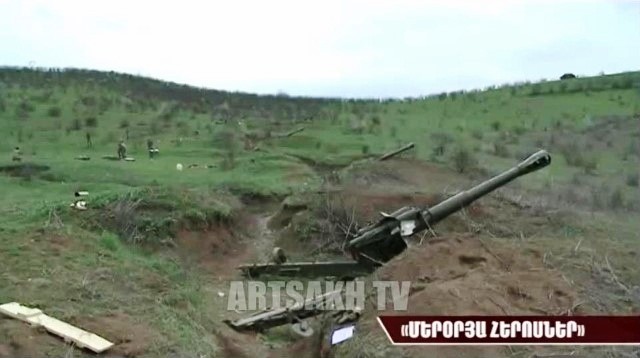
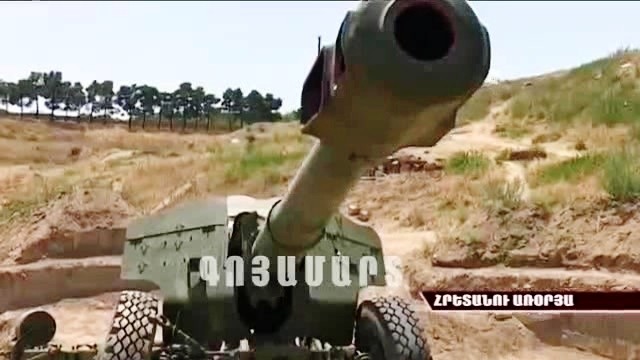
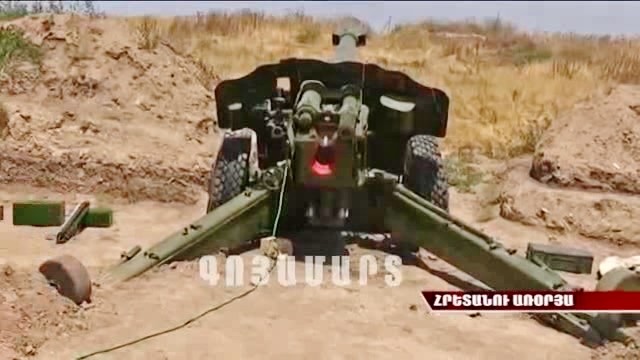
Comment